|
A field guide to Kenyan
mangroves
|
Uca lactea annulipes H. Milne Edwards, 1852
Family: Ocypodidae
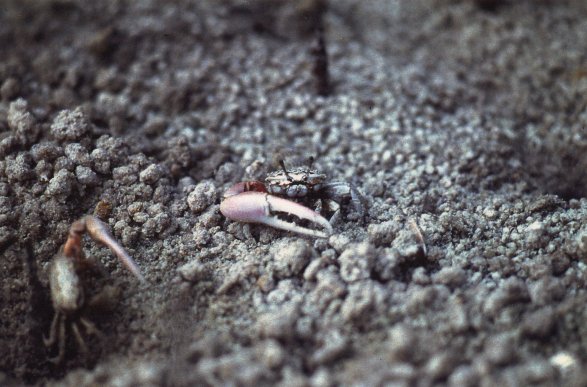
Zone: A. marina landward Ceriops tagal and mixed zones (Hartnoll, 1975; Gillikin, 2000).
Habitat: Burrowing to about 50 cm depth.
Food: Detritus (Icely and Jones, 1978); but may also feed on dead crabs! See photo below.
Ecological notes: Found primarily higher on the shore but can be found throughout the mangal; can survive in sediments with low organic matter (Gillikin, 2000). Found in a wide range of salinities (Hartnoll, 1975; Vannini and Valmori, 1981; Gillikin, 2000).
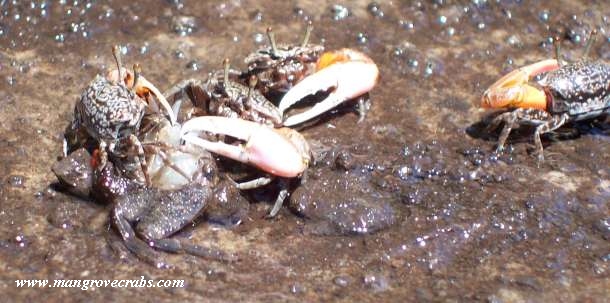
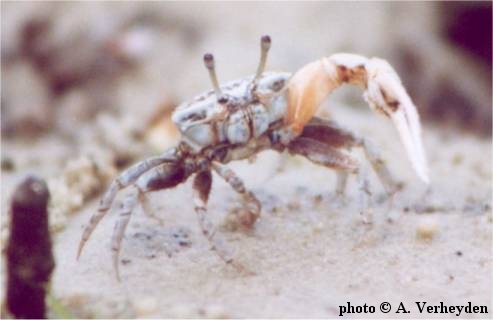
Waving display during mating
Distinguishing characteristics: Major claw pink, sometimes nearly white; broad front; strong tuberculate ridge on palm and a smooth external face of the hand with no triangular depression (carapace width about 1.5 cm). Movable finger of claw extends past immobile finger.
Geographical range: Somalia to South Africa, Indonesia and Philippines (Vannini and Valmori, 1981)
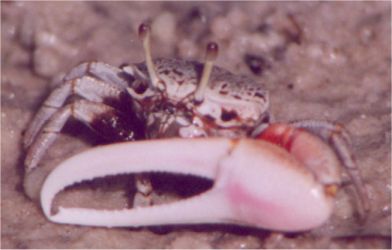
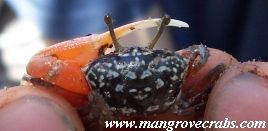
References:
Cannicci, S., F. Dahdouh-Guebas and L. Montemagno, 1993. "Field Keys for Kenyan Mangrove Crabs." Museo Zoologico "La Specola", Dipartimento di Biologia Animale e Genetica dell'UniversitÓ Degli Studi di Firenze, Via Romana 17, I-50125 Firenze, Italia.
Gillikin, D.P., 2000. Factors controlling the distribution of Kenyan brachyuran mangrove crabs: Salinity tolerance and ecophysiology of two Kenyan Neosarmatium species. M.Sc. Thesis, Free University of Brussels, Brussels, Belgium.
Hartnoll, R.G., 1975. "The Grapsidae and Ocypodidae (Decapoda: Brachyura) of Tanzania." J. Zool. Lond. 177:305-328.
Icely, JD and DA Jones, 1978. Factors affecting the distribution of the genus Uca (Crustacea: Ocypodidae) on an East African Shore." Estuarine and Coastal Marine Science 6:315-325.
Macnae, W., 1968. "A General Account of the Fauna and Flora of Mangrove Swamps and Forests in the Indo-West-Pacific Region." Advanced Marine Biology 6:73-270.
Vannini, M. and P. Valmori, 1981. Researchers on the coast of Somalia. The shore and the dune of Sar Uanle. 31. Ocypodidae and Gecarcinidae (Crustacea Brachyura). Monitore Zoologico Italiano 14: 199-226.